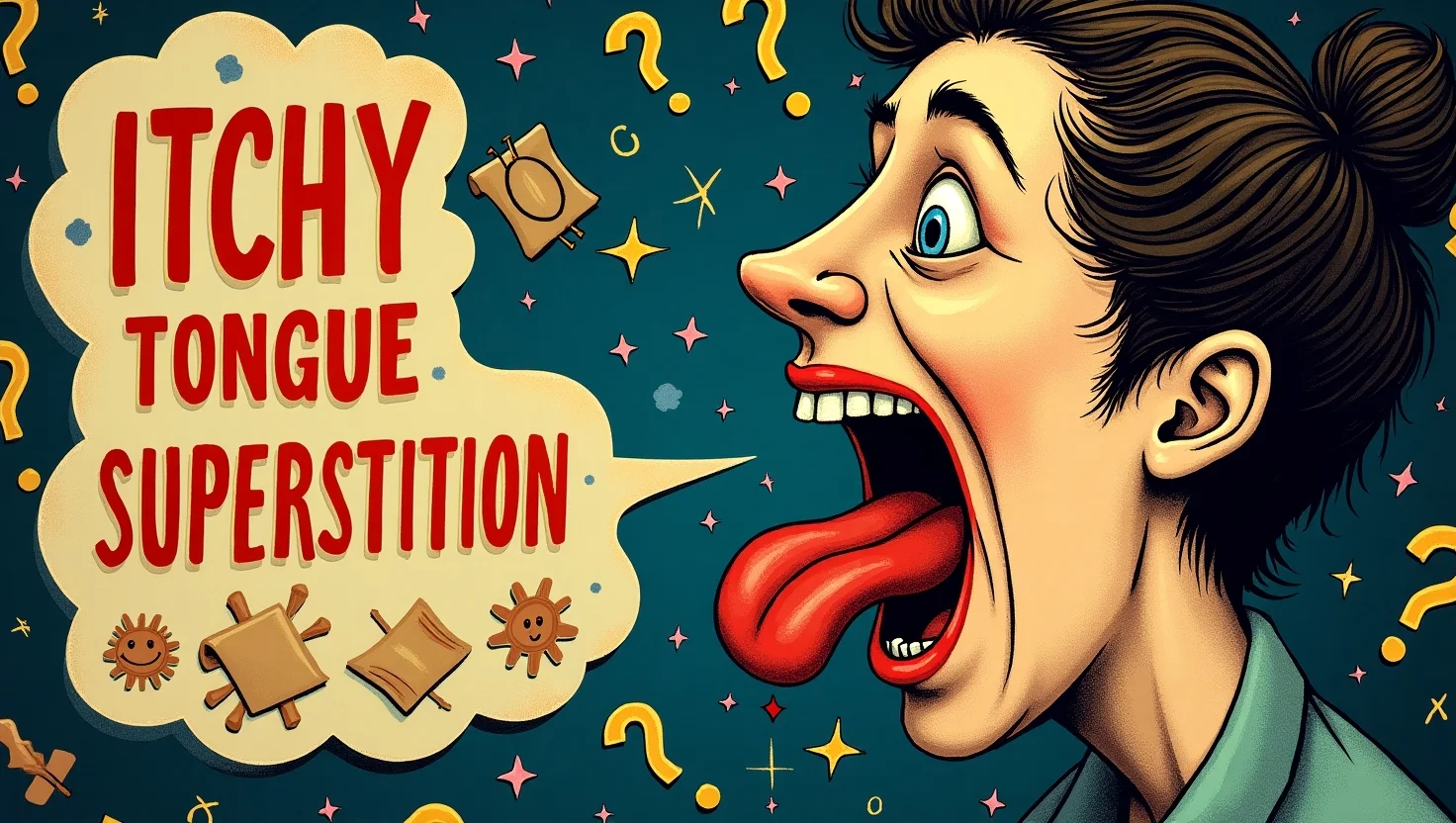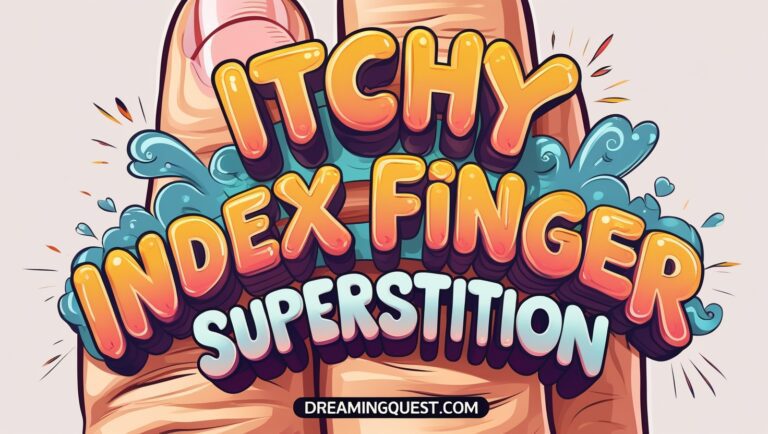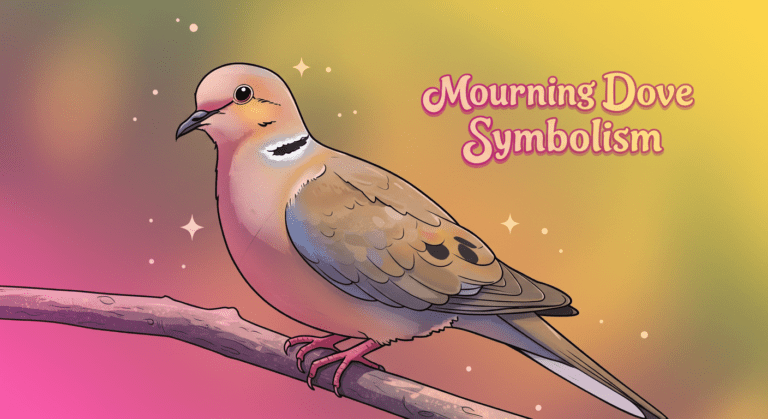Itchy Tongue Superstition – Fact or Fiction!
Ever felt an itchy tongue and wondered if it’s more than a random feeling? The itchy tongue superstition says it might signal an upcoming call or a visit. In Asia, it’s believed to mean good news, while in Europe, it’s thought to carry hidden messages.
This article dives into whether these tongue superstitions are true or just old myths. We’ll look at history, science, and psychology to understand superstitious beliefs today.
Key Takeaways:
- Uncover global stories behind the itchy tongue superstition and its roots.
- Compare how different cultures explain the meaning of itchy tongue through folklore.
- Learn medical facts that challenge tongue superstitions with science.
- Understand why superstitious beliefs about tongues persist even in modern times.
- Get tools to test if these traditions hold any real-world significance for you.
The Curious Case of the Itchy Tongue Superstition:
Ever felt a sudden tingle on your tongue and wondered what it means? The itchy tongue spiritual meanings have puzzled people for ages. It mixes old tales with our daily lives. Let’s explore this mystery together.

What Exactly Is This Superstition?
The superstition says an itchy tongue hints at future events. Many believe it means someone is talking about you, maybe behind your back. Others think it signals news, whether it’s good or bad, based on where the itch is.
This simple itchy tongue meaning is at the heart of many common tongue superstitions.
Itchy Tongue Superstition: What Does It Symbolize?
In many traditions, an itchy tongue is believed to carry hidden messages from the spiritual realm. Some cultures see it as a sign of gossip, while others connect it to energy shifts or warnings.
Common Beliefs About Itchy Tongues:
Beliefs differ by culture and tradition. Here are a few:
- Itch on the tip: A sign someone is talking about you.
- Itch on the middle: Possible money changes or surprises.
- Itch on the back: A warning of conflict or disagreement.
Historical Origins – Where Did This Belief Come From?
Superstitions like the itchy tongue have their roots in ancient survival instincts. Early humans used bodily sensations to guide them through uncertainty. The tongue, key for speech and eating, became a symbol in many folklore origins.

It linked its sensations to unseen forces. This belief shows how our ancestors made sense of the world.
- Ancient tongue beliefs in Greece tied tongue tingles to impending gossip.
- Roman records noted it as a sign of hidden truths, while Chinese texts linked it to incoming news.
“Bodily signals were once humanity’s first ‘fortune-tellers,’ shaping communal traditional beliefs,” notes research into ancient practices. “These tales turned randomness into patterns that felt meaningful.”
These ideas were passed down through stories and rituals. Even as writing emerged, the itchy tongue myth endured. It shows how deeply folklore origins connect to human psychology.
Modern science offers new explanations, but the myth’s persistence shows how ancient fears and hopes still echo today.
Exploring these roots reveals how basic human needs—like predicting the future—shaped enduring traditions. The itchy tongue isn’t just a quirky belief; it’s a window into how our ancestors made sense of a mysterious world.
Cultural Variations – How the Itchy Tongue Superstition Differs Worldwide:
The itchy tongue superstition is found in stories from all over the world. It shows how cultural superstitions influence these beliefs in different ways. Let’s dive into how these stories vary across borders.
Asian Interpretations and Beliefs:
In China, an itchy tongue is seen as a sign from the spirit world. In Japan, it warns of gossip, telling you to stay quiet until it goes away. In Thailand, it’s believed to be a sign from ancestors, asking for respect through rituals.
European Folklore Surrounding Itchy Tongues:
German folklore says an itchy tongue means someone is coming to visit. Celtic lore suggests it’s a sign of love. In Italy, it can mean love or trouble, depending on the day. These stories are part of Europe’s rich tongue folklore.
African and Caribbean Traditions:
West African Yorubas believe an itchy tongue is a sign from their ancestors. They think it’s a call for offerings. In the Caribbean, people mix African and European myths. They see it as a sign for healing ceremonies.
American Adaptations of the Superstition:
In the U.S., superstition has changed over time. Early settlers mixed European and Indigenous beliefs. Now, some think it means you have a social media notification. This is a modern twist on ancient global folklore.
| Region | Core Belief | Example |
| Asia | Spiritual omens | China: News from ancestors |
| Europe | Communication signs | Germany: Letters arriving |
| Africa/Caribbean | Ancestral guidance | Yoruba: Offerings for balance |
| Americas | Cultural fusion | USA: Social media + old-world myths |
10 Spiritual Meanings of an Itchy Tongue:
Throughout history, itching in different body parts has been linked to spiritual beliefs, and an itchy tongue is no exception. Many cultures associate it with messages from the universe, hidden warnings, or changes in energy. Below are 10 spiritual meanings behind an itchy tongue.

1. Someone Is Talking About You
One of the most common superstitions about an itchy tongue is that someone is gossiping about you. If your tongue suddenly starts itching for no apparent reason, it could be a sign that people are discussing you behind your back positively or negatively. Some traditions even suggest that if the tip of your tongue itches, it’s positive talk, while the sides indicate negative gossip.
2. You Need to Speak the Truth
An itchy tongue may be a spiritual nudge from the universe, urging you to speak up and be honest. If you’ve been holding back your feelings or suppressing an important truth, your body might be manifesting this through an itchy sensation. This could be a reminder to clear misunderstandings or express yourself authentically in conversations.
3. A Sign of Good Luck
In some cultures, an itchy tongue is believed to be a sign of good fortune coming your way. If the itch occurs unexpectedly, it might mean that something positive, such as a financial gain, career opportunity, or happy event, is about to unfold. This belief is especially strong in Eastern traditions, where bodily sensations are often seen as omens of future events.
4. A Warning of Betrayal
If your tongue suddenly itches and you feel uneasy, it could be a spiritual warning of betrayal. Some believe that this itch serves as a protective sign, letting you know that someone in your close circle may not be trustworthy. Pay attention to your intuition and be cautious about who you share personal information with.
5. A Call for Spiritual Cleansing
An itchy tongue can also be a sign that your energy field needs cleansing. Negative energy, bad karma, or emotional blockages may be building up in your life. In spiritual practices, performing a cleansing ritual, such as burning sage, meditating, or taking a salt bath, can help remove unwanted energy and restore balance.
6. You Are About to Receive a Message
Many spiritual traditions believe that an itchy tongue is a sign of an upcoming message from the universe or a spirit guide. This could be in the form of a dream, sudden intuition, or even a conversation with someone who unknowingly gives you the answer you’ve been seeking. Stay open to signs and synchronicities in your life.
7. A Symbol of Conflict
If your tongue itches persistently, it may indicate that a verbal dispute or argument is about to happen. Some believe that if the right side of your tongue itches, you may be the one to start the conflict, whereas if the left side itches, someone else may provoke you. This could be a warning to think before you speak and avoid unnecessary confrontations.
8. A Sign of a New Opportunity
For those who believe in spiritual symbolism, an itchy tongue can signal that a new opportunity is on the horizon, particularly in communication-related fields. If you’re in public speaking, teaching, writing, or sales, this could mean that your voice will soon be heard by the right people, leading to growth and success.
9. A Reminder to Watch Your Words
An itchy tongue might be a spiritual caution to be mindful of your words. Words hold power, and negative speech, gossip, or careless remarks can affect not only others but also your own energy. This sensation could be a sign to practice kindness, honesty, and mindful communication in your daily interactions.
10. A Connection to Past Lives
Certain spiritual traditions believe that itching in specific areas of the body can be linked to past life experiences. An itchy tongue might indicate that you are carrying unresolved karmic energy from a past life, particularly involving speech, truth, or communication issues. This could be a sign to break old patterns, improve your self-expression, and embrace your authentic voice.
What Your Itchy Tongue Might Really Be Telling You?
Superstitions are fun, but your tongue’s tingling could signal real health clues. Let’s explore the science behind itchy tongue causes and what they might mean for your tongue health.
Medical Causes of Tongue Itchiness:
| Cause | Symptoms |
| Dry Mouth | Cracks, rough texture |
| Vitamin Deficiencies | Persistent tingling, soreness |
| Oral Thrush | White patches, burning |
Allergic Reactions and Food Sensitivities:
Some allergic tongue reactions show up fast. Common triggers include:
- Citrus fruits
- Nuts or shellfish
- Food dyes or preservatives
Mouth swelling or hives may signal a severe reaction needing immediate care.
When to See a Doctor About an Itchy Tongue?
Consult a professional if symptoms include:
- Difficulty swallowing or breathing
- Swelling spreading beyond the tongue
- Long-lasting symptoms (weeks)
Ignoring serious medical tongue issues can risk your health. Early checks are key.
The Psychology Behind Believing in the Itchy Tongue Superstition:
Belief psychology reveals how our minds link random events to find meaning. When your tongue itches, it might signal to you about future news. This isn’t magic, but how we process information.

Superstition psychology sees this as a way to deal with uncertainty. It’s a mental shortcut.
- Cognitive biases like confirmation bias make us focus on times the superstition “works” while ignoring when it doesn’t.
- Pattern recognition pushes us to see connections between unrelated events, like an itchy tongue and a phone call about a job offer.
“Superstitions thrive when logic feels out of reach,” noted researchers in a 2020 study on cognitive biases. “They offer comfort by simplifying chaos.”
Superstitions also connect us socially. Sharing these beliefs strengthens our group identity. It’s not about dismissing traditions. It’s about understanding our minds’ ways of making sense of uncertainty.
Next time your tongue tingles, remember it’s not destiny. It’s just your brain doing its thing.
Famous Anecdotes and Stories About Itchy Tongue Predictions:
History and pop culture are filled with famous superstition stories. These stories turn a simple itch into a sign of luck or warning. From Hollywood to politics, they add humor and tradition to our lives. and historical superstitions have shaped our imagination.
Celebrity Encounters with the Superstition:
Many stars have their own quirky beliefs. Some openly share their superstitions. For example, actor Tom Hanks believes an itchy tongue means a big role is coming. He calls it his body’s GPS for opportunities.
Singer Adele’s team remembers her jokes about itchy tongue before Grammy wins. These celebrity superstitions make us wonder if it’s just coincidence or faith.
Historical Figures and Their Experiences:
Even leaders believed in signs from their bodies. In 1776, Benjamin Franklin wrote about a strange itch before drafting the Declaration of Independence. Winston Churchill’s team noted his habit of pausing decisions when his tongue felt tingly.
These historical superstitions show how old beliefs stick around in big moments. They remind us how folklore changes with each era, making a small sensation into a big legend.
Scientific Perspective: Coincidence vs. Causation
Superstition science shows how our minds shape reality. We often hold onto beliefs like the itchy tongue prediction. This is because of two mental quirks: confirmation bias and pattern recognition. These tendencies make some superstitions seem true, even without evidence.
The Power of Confirmation Bias:
Confirmation bias works by picking what we remember. Let’s say you feel your tongue itch and then spill coffee. You might link the two, but forget all the times your tongue itches without accidents. Confirmation bias examples like this change how we see things. People who believe in luck notice “hits” 3x more than “misses,” making false connections between random events.
Pattern Recognition in Human Psychology:
Our brains are wired to find patterns, like spotting predators in rustling leaves. But this can lead to mistakes. Linking an itchy tongue to future events is an example of pattern recognition gone too far. It’s like seeing shapes in clouds, which is fun but can be misleading. Scientists call this apophenia—the urge to find meaning in chaos.
5 Common Superstitions About Itchy Body Parts:
Throughout history, different cultures have associated itching in various body parts with spiritual meanings and superstitions. Here are some of the most common beliefs:
1. Itchy Forehead Superstition:
An itchy forehead is often thought to mean that someone is thinking about you intensely. Some believe that if your left forehead itches, it signifies negative thoughts, while an itchy right forehead indicates positive thoughts or admiration.
2. Itchy Upper Back Spiritual Meaning:
If your upper back itches, superstition suggests that someone close to you may betray you. This could be a sign of gossip or deceit happening behind your back. Some also associate this with past karma catching up.
3. Itchy Anus Spiritual Meaning:
An itchy anus is linked to financial difficulties or unexpected expenses in many folk beliefs. Some cultures also interpret it as a warning to be cautious with money or a sign that you may soon experience an embarrassing situation.
4. Itchy Head Superstition:
An itchy head is believed to be a sign of stress, overthinking, or the need for mental clarity. In some traditions, it signifies that you’re about to receive important knowledge or that your mind is overloaded with unnecessary thoughts.
FAQs:
What is the superstition about itching?
Many cultures believe that itching in different body parts has spiritual meanings. For example, an itchy tongue signifies gossip, while an itchy palm can mean incoming money or financial loss, depending on which hand it is.
What does it mean when you have a scratchy tongue?
A scratchy or itchy tongue can symbolize someone talking about you, a spiritual message, or an unspoken truth you need to express. It may also have medical causes like allergies, infections, or dry mouth.
Can anxiety cause an itchy tongue?
Yes, anxiety can lead to an itchy tongue due to heightened nerve sensitivity, stress-related dryness, or allergic-like reactions. Stress can also trigger psychosomatic symptoms, making the tongue feel itchy without a physical cause.
When should I be concerned about an itchy tongue?
If your tongue itches a lot, swells, or makes swallowing hard, see a doctor. These signs might mean you have an allergy or another health problem.
How does the location of the itch on my tongue matter?
The itch’s location can mean different things. For instance, an itch at the tip might signal upcoming talks. Others think it means deceit.
Can I record my experiences with the itchy tongue superstition?
Yes! Writing down your experiences can help you spot any links between itchy tongue and important life events.
Do other body sensations have similar superstitions?
Yes, many sensations have their own superstitions. For example, an itchy palm might mean money is coming. An itchy ear could mean someone’s talking about you.
Conclusion: Should You Trust That Tingle on Your Tongue?
The itchy tongue superstition blends old tales with science. Cultural beliefs cherish these stories, but doctors look for real reasons like allergies. Your decision to believe in omens is up to you.
Noticing tongue sensations can warn of health problems. But it’s also fun to share these tales with friends. Many see these tingles as messages from the past, connecting us to our heritage. Still, science tells us to check for allergies or mouth issues if it persists.
How should we view these sensations? Enjoy the intrigue but also listen to your body. Whether it’s an omen or a sign to see a doctor, the itchy tongue teaches us to be curious yet cautious. Every tingle has a story, both old and new.







